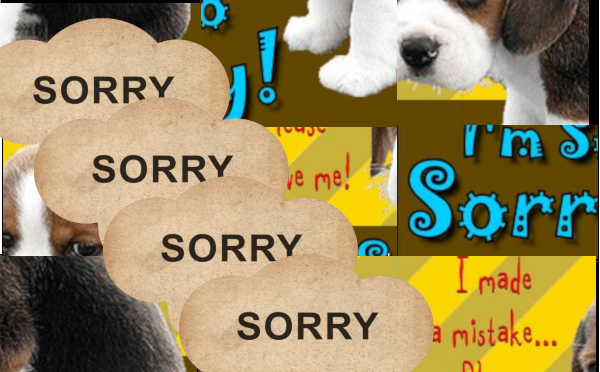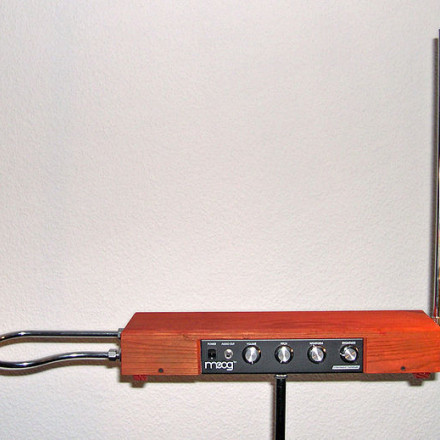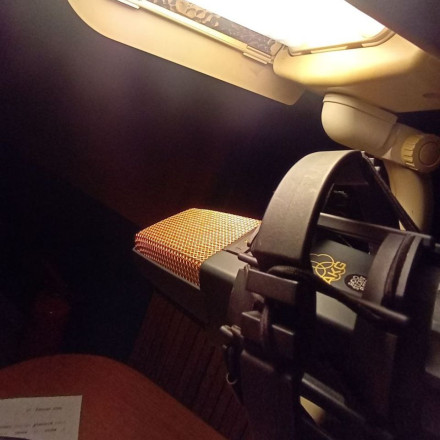SORRY__SORRY
DIFFERENT WAYS OF APOLOGIZING & SAYING SORRY
Our list of the most common phrases for saying sorry.I apologize.
I beg your pardon.
I hope you can forgive me.
I owe you an apology. I'm sorry.
I sincerely apologize.
I take responsibility, I'm sorry.
Sometimes, it can help to explain your actions. Once you've received forgiveness (and only then), you can begin to delicately explain the reasoning that led to your mistake. Don't try to exonerate yourself from any guilt, as you've still made a mistake that hurt someone. Instead, try to tell this person why you did what you did. This may require further apologizing - for stupid assumptions you made, for errors in judgement, or for letting your emotions get the better of you, for instance. As you explain, allow the other person to chime in with comments or arguments of their own.
Again, remember not to excuse yourself from your wrongdoing. A good rule to follow is to offer an explanation, rather than an excuse.
9
Slowly rebuild your bond.Download Article
Image titled Say You're Sorry Step 9
Be sure to demonstrate your attention by maintaining eye contact, nodding, and responding to questions or accusations respectfully. Besides these things, try to stay quiet and attentive until the person you've hurt is done talking. Never interrupt - this can aggravate tensions and lead to further hostility.
6
Question
Can I say I am sorry in a note?
Community Answer
Community Answer
The best way is to apologize in person. Saying you're sorry in a note can come across as insincere. It's awkward and uncomfortable to have to face the person, but it's one of the consequences of wronging someone else (and a good incentive not to do so in the future).
Not Helpful 13Helpful 19
See more answers
I'd like to apologize for how I reacted yesterday.
What is your question?
Submit
Tips
Don't make the same mistake.
Give them plenty of time before doing any of these steps. Remember that friendship is work before play.
Be sure to steer clear of foods, drinks and flowers your friend is possibly allergic to. That would but you into bigger trouble.
Oops! I'm Sorry!
Pardon me. (for light infractions with strangers)
aggrieved party is engaging in emotional abuse with you,[11] not only should you not apologize, but you should also seek outside help in the form of a trusted friend or counselor.
Most of the time, deep down, you'll know whether or not you were genuinely at fault in a given situation. When you've had time to cool down, reflect frankly on your actions. If you still think you're guilt-free but find yourself making excuses for your behavior that aren't immediately self-evident (that you didn't mean to do whatever you did or that the person demanding an apology is being too sensitive, etc.), you may want to reconsider.
Community Q&A
Question
How do I apologize when the person ignores me completely?
Community Answer
Community Answer
Give the person time. It's better to leave them be until they're willing to accept your apology, because if you don't it could create more problems.
Not Helpful 13Helpful 46
Question
How do I apologize to a sibling after acting selfish?
I take full responsibility.
You may want to complete the sentence with one of these phrases:
...for any problems I may have caused.
...for my behavior."please forgive me" fairly early on. This will show that you're serious and will give your apology legitimacy, even if it isn't accepted.[3][4]
This can be surprisingly hard! It's never easy to admit that we've done something foolhardy or mean - it acknowledges the oft-avoided truth that we're fundamentally imperfect. However, it's the only way to go if you're serious about saying sorry.
Avoid saying "I'm sorry you're upset" because that language doesn't take responsibility for the action.[5]
4
Use respectful, conciliatory body language.Download Article
Image titled Say You're Sorry Step 4
I'm sorry. I did you wrong. Let me make it right.
Ask a Question
someone's forgiveness, the relationship you shared wasn't a very deep one.[8]
Don't give gag gifts or flirty, saucy presents. Instead, give something small and personal that fits what you know about the person. A small, modest bouquet (no roses unless you're romantically involved) and a note is never a bad idea. Never give money - this is what mafia dons do to solve their grievances.
8
Tell your side of the story.Download Article
Image titled Say You're Sorry Step 8
Give this person space. Even if your apology was accepted, things can remain tense and awkward between you and the person you've wronged. It's not uncommon for it to take time for someone to completely trust you again. During this time, you may have less contact with this person and/or share a lower level of intimacy. Be willing to wait a week, a month, or longer for things to fully "cool down."
10
Know when not to apologize.Download Article
Image titled Say You're Sorry Step 10
At times, people will demand apologies that you shouldn't give. If, for instance, you're being asked to apologize for something you didn't do, you should obviously maintain your innocence.[10] If you've reflected on the events that transpired and believe that, in fact, the other party is at fault, you and this person probably still need to discuss the issue at hand. Finally, if you have any reason to believe the
My bad.
My fault, bro. (American expression)
My mistake.
How to Say You're Sorry
Download Article
Co-authored by William Gardner, PsyD
Last Updated: April 11, 2022 References
Saying you are sorry - it's something we have to do occasionally, and it's often a painful experience. Knowing how to apologize respectfully and sincerely is a beneficial skill a person can have in the professional world as well as in his or her personal life. Even so, many live their entire lives without ever truly learning how to do this. Luckily, though the process isn't always easy, it is straightforward. See Step 1 below to get started.
1
Determine what caused the bad feelings.Download Article
Image titled Say You're Sorry Step 1
When you apologize, it's important to know precisely what you should be apologizing for. If you don't, you risk, at best, minor embarrassment, and, at worst, causing further offense. Emotions can often skew our perceptions of arguments and other stressful interactions, so ask other (uninvolved) people for their objective opinion about what exactly led to the disagreement. Reflect on your actions after
Show your change of heart. Everyone expresses emotion differently - some people show their worry or concern on their face, while others are much harder to read. Even if you're the latter type, do your best to use your body and face to convey the sincerity of your apology. Don't appear smug, disinterested, or angry when you apologize. Maintain eye contact and speak with a clear but respectful tone. you've had time to calm down - did you act respectfully and logically or were you disrespectful? If you acted due to anger, was it justified or not?[1]
If you're still on speaking terms with the person you've wronged, you can try asking for their version of events right before you make your apology. You may be surprised to learn that what you think happened and what s/he thinks happened are two different things.
2
Devote time and attention to your apology.Download Article
Image titled Say You're Sorry Step 2Speak directly to the person you're apologizing to - don't talk over their head, talk down to them from a higher position, etc. Never, ever condescend or intimidate someone by using hostile body language (like puffing your chest out or looming over them).
...for my actions.
Other contexts for ‘sorry’
There are a few situations where English speakers (especially Canadians) say sorry, but they aren’t really apologizing. For example, when you need to pass someone in a crowded place, it’s common to say sorry, but you can also say:
Pardon (me)Community Answer
Community Answer
Tell them you're sorry for being selfish, and that you'll do your best to be more generous and caring in the future. If they don't forgive you right away, just give them some time. Then do your best to actually refrain from being selfish. Actions speak louder than words!
Not Helpful 11Helpful 23
My fault, bro.
In a very informal text message, a young person might even abbreviate "sorry":
wanna meet up later?
sry, cant. busy.
Apologizing when you make a more serious mistake:
For a more serious mistake, especially in customer service situations, you might say:
I’m so sorry.
With a sincere apology and a genuine willingness to change, most friendships and relationships can be repaired. This probably won't happen immediately after your apology unless your misdeed was relatively small. When enough time has passed for your to regain the trust of the person you've hurt, gradually ease back into your old relationship with this person. Resume doing the things you used to do that required trust or intimacy.[9]I want to tell you how sorry I am.
I was wrong. I'm sorry and I apologize.
I was wrong. Can you forgive me?
I'd like to say sorry for how I reacted the other day.
I'm so sorry. I should have known better.
I’m sorry.
If, for some reason, you can't give an apology in person, give one via phone call. The same rules apply here - clear your schedule, hold your other calls, etc. You may also want to write a carefully-worded, sincere letter or email. Text messages are an absolute last resort and should only be used when the only alternative is no apology at all.
3
Clearly and directly apologize.Download Article
Image titled Say You're Sorry Step 3
A direct apology will sound more sincere. When you want to say sorry, don't allow yourself to equivocate or "weasel out" of your apology. Don't use phrases like, "I thought things would go differently" or "I guess we had a misunderstanding" to allow yourself to escape any admission of wrongdoing. Instead, get your apology started on the right foot by saying something along the lines of "I'm sorry", or
5
Listen to the other person.Download Article
Image titled Say You're Sorry Step 5
Saying sorry should be a two-way dialogue. Even if you're the sole party at fault, remember an apology involves two people. Let the person you've hurt air any grievances you haven't addressed. You owe this person your respect and attention.[6]
I apologize.
Sometimes people say "oh my goodness" or "oh my gosh" before they apologize in these situations:
Oh my goodness! I'm so sorry. I should have watched where I was going.
Apologizing for incorrect information
If you cause a problem with communication, or give incorrect information, you might say:
My mistake.
I had that wrong.
I was wrong on that.Mea Culpa (Latin but used in English)
My apologies.
Pardon me, that was rude / wrong of me.
Please accept our (sincerest) apologies.
Please don’t be mad, I'm really sorry.
Apologizing for small mistakes
Simply saying "sorry" is most common with small mistakes, like bumping into someone or saying someone’s name wrong. In these situations, people often say:
Whoops! Sorry!
Oh! Sorry.
Sorry ‘bout that.
There are a few slang phrases that you can also use for slight mistakes:
Oh, my bad.
Show your willingness to change.Download Article
Image titled Say You're Sorry Step 6
The most important part of any apology is your commitment to act differently in the future. For instance, avoiding behavior that causes discord, getting rid of bad habits, or changing your point of view. If you don't at least try to change, your apology will lack sincerity, becoming basically an admission that you're sorry about something, but not sorry enough to do anything about it. Make a commitment to act differently in the future and stick to it - if you truly care about the person you're apologizing to, you'll naturally want to avoid hurting them again anyway.[7]
Old habits die hard. Promising to change is one thing, but actually changing is another thing entirely. We've all done it - sworn that we'd change our ways, then made the exact same mistake again. If you do, you'll need to make another apology, but be careful - too many fruitless apologies can damage or even end a relationship.
7
Give a token of your sincerity (optional).Download Article
Image titled Say You're Sorry Step 7
If you so desire, a modest present or a heartfelt note can help ease any lingering animosity. Use restraint here - no present, however expensive, is a substitute for a genuine apology, so it's best to stick to small, genuine gifts, rather than extravagant ones. Never use a gift to get out of an apology. Remember, if you can buy
If you want to, you can also say:
I hope you can forgive me.
That was wrong of me.
...if you’re very serious about your apology.
Writing a formal apology
We use the most formal English in writing. In this situation, you could use these phrases:
I sincerely apologize.
Excuse me
You can also use "Sorry?", "Excuse me?", and "Pardon?" (or "Pardon me?") to ask someone to repeat what they said. In this case, you should use a rising question intonation.
Please excuse my lack of understanding / knowledge / courtesy.
Please excuse my poor behavior.
An apology should never be an afterthought. Giving a lackluster, impersonal apology is disrespectful and can generate further hostilities. Even if you're exceptionally busy and you believe the perceived "slight" to be relatively minor, it's important to set aside time for a personal, one-on-one apology. Sit down with the aggrieved party in a quiet, private location so that you can give a heartfelt apology without having to worry about interruption or distraction.[2]
My apologies.
Sometimes you can say two of these phrases together, and you can say "sorry" at the beginning or end:
Sorry, my apologies. I had that wrong.
Making a formal or serious apology
If you make a serious mistake with a friend, loved one, or coworker, you shouldn’t use casual language to apologize. Try a more formal apology, such as:
I’d like to apologize.
I want to apologize.
I owe you an apology.
I wanted to tell you I’m sorry.
After these phrases, you can add "for (doing something/ how I… / what I…)":
Sorry about that.
Sorry. It was all my fault.
Notice that some contain the word apology while others use the word sorry.











Dodaj komentar
Komentiraj